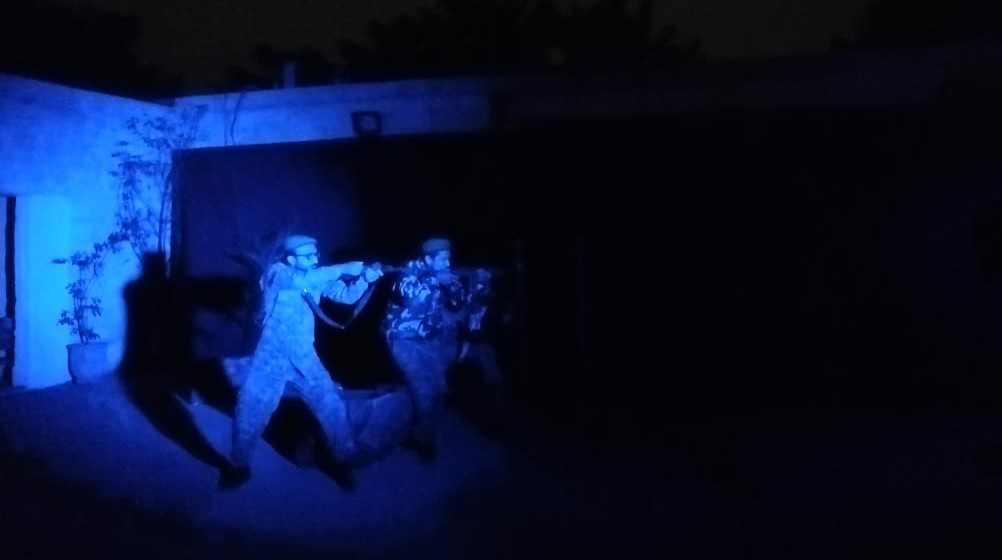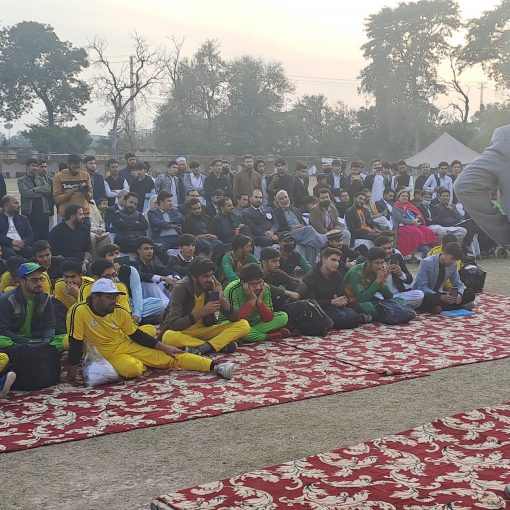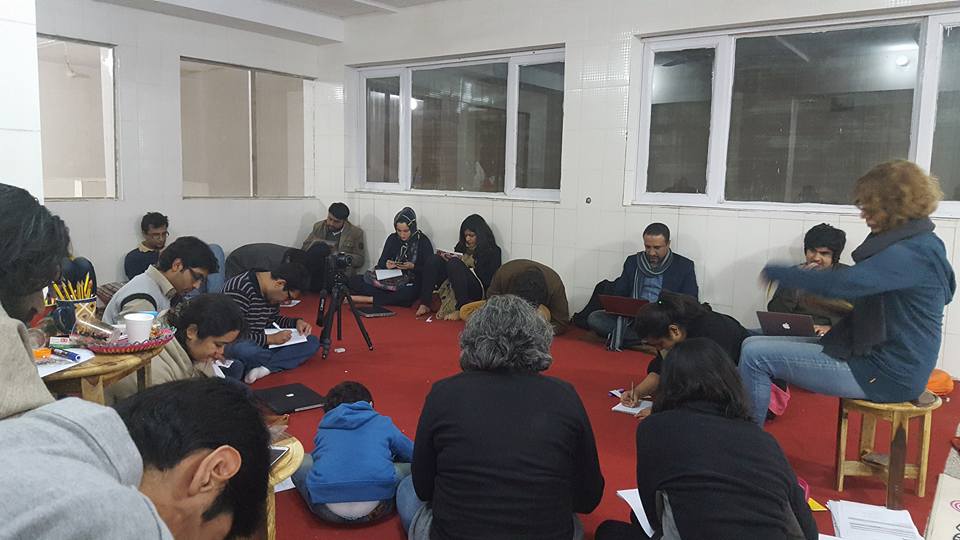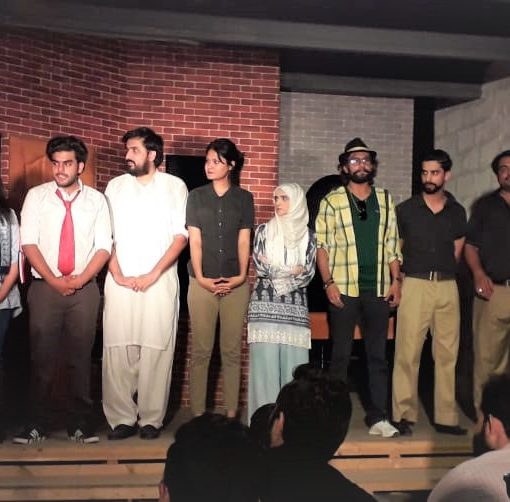by Zehra Abid
In a world where too many people are separated from their loved one’s today, people from both sides of the border have seized this opportunity to reconnect, digitally restoring long-severed ties with intellectual and cultural engagement online that bring together Indians and Pakistanis, finally, on the same forums. Aakhri Salute is a reminder of how unbreakable these bonds of friendship have been for all time, even in the worst of times.
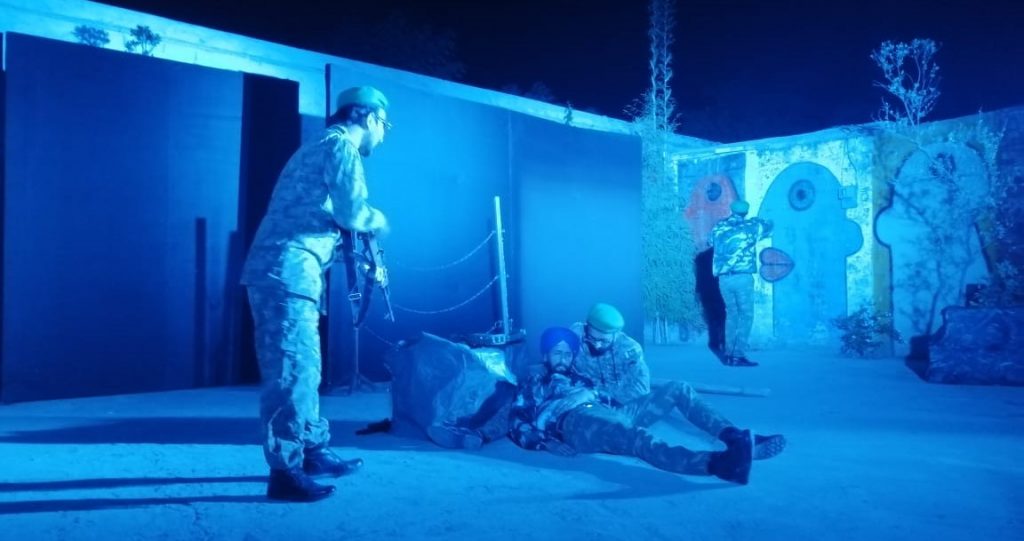
This is a story of men on both sides of the border, once friends who fought together in the Great War, but now enemies as the two countries fight over Kashmir. These men express the incomprehensibility of the times, and their ascribed roles as enemies sometimes with humour, and at other times by expressing their unfamiliarity with this divided land, its air and water both alien yet their own.
Often the enormity of the tragedy of Partition is lost in numbers of the millions displaced and thousands raped – numbers that are far beyond the human capacity to absorb violence. Safeer’s adaptation connects us to the felt trauma of the time where violence is not only understood in the starkness of mortality but also in the most everyday of experiences. When in desperation Rab Nawaz (Abdul Quddos) cries, “Rab kare Ram Singh bach gaya ho”, after shooting at his dear friend, the audience is taken back in time, the trauma from seven decades ago becoming most real, most present.
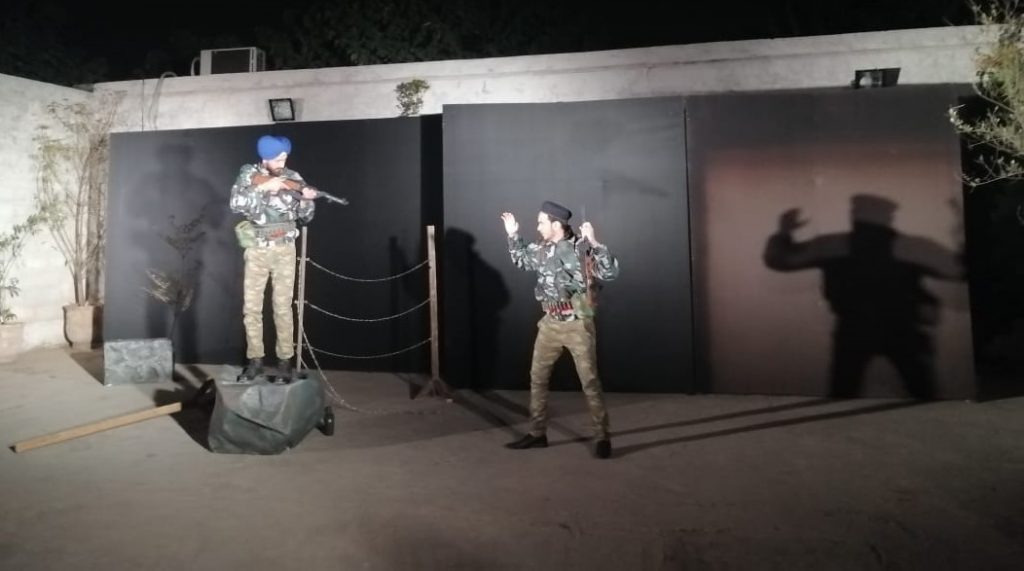
In 35-minutes, Safeer brings Aakhri Salute to stage so seamlessly that it appears as if the play is performed exactly how it was written, although much of this short story itself is, in fact, a narration. Safeer’s actors are also his students from the classes organised by Theatre Wallay, but while watching the play, it may be impossible to guess that these are first-time actors. The actors embody the characters so deeply that one is absorbed in their love, in their loss, and in their friendship. The performances by this new cast depict how important the story is to the actors themselves and what we see before us are some young men emotionally invested in what the young men generations before them have felt.
Aakhri Salute is also an important story to tell in these times because it reminds us of the countless South Asian men who fought in the World Wars but never made it to war remembrances, whether in museums, memorials, or cinema. Staging this play is homage to these young men made to fight Europe’s war.
While many are familiar with Saadat Hasan Manto’s Toba Tek Singh and Thanda Gosht, Aakhri Salute is in comparison, lesser-known. Theatre Wallay’s adaptation of Aakhri Salute is not only a service to Manto’s many lovers, but to all people of the lands that comprise South Asia who believe in the values of love, togetherness, and friendship, and who choose to continue to remember the tragedy of this historical moment so it is neither repeated nor forgotten.
